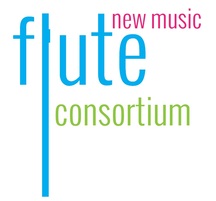Get to Know...Martin Rokeach In addition to the opportunity to reacquaint myself with the piece they were honored for (in this case Going Up? for flute, viola, and cello), my favorite aspect of writing these features is learning a bit more about the composers. I often find a surprising or fascinating fact, an interesting parallel to other composers, a new piece I love, or a connection to someone I know or an FNMC member. While preparing Martin Rokeach’s composer spotlight, I found all of these! Perhaps of greatest interest to our members, many of whom love the piccolo as much as I do, Martin composed a wonderful piccolo concerto, available both in the original version for piccolo and orchestra and a very effective 2018 transcription for piccolo and piano. FNMC commissioning member Amy Likar has been a huge supporter of this concerto, she presented the world premiere performance with the Oakland Symphony Orchestra and has subsequently performed the orchestral version several times most recently with the University of Southern California Concerto Orchestra. She has also performed the version with piano reduction multiple times including at the NFA Convention. If Amy’s support and my enthusiastic endorsement haven’t inspired you to listen, perhaps this review from the premiere might. In it, The San Francisco Chronicle wrote of Rokeach’s writing for the piccolo: “this is unmistakably a work written with its specific circumstances in mind. Rokeach revels in the particular sonorities of the piccolo — particularly its sweet-toned, rather vulnerable low register, which is worlds away from the piercing shrillness with which it usually blasts its way through an orchestral texture. And he lavishes the solo part with care and solicitude. He just doesn’t ask the piccolo to dance like a clown for your amusement. It’s a perfect balance to strike.” I suspect that when many of our piccolo loving members listen to the concerto they will be programming it as well! If you’re looking for a less substantial work in terms of time, but one that is in no way less substantial musically, check out his incredible Nocturne for piccolo and piano, written for the wonderful Eldred Spell. I’m listening to it as I write and thinking I must program it soon! I love the use of the low register (something Eldred demanded…read the cute story of its origin below) and the dark mood! I was interested to find that Martin is a guitarist who began his journey in music playing popular music. He is at least the fourth composer honored in our competition to take that course. Martin’s work for flute, viola, and cello, Going Up? was chosen by FNMC members as a finalist in the chamber music category in 2018. It’s a charming and energetic work that our members will certainly want to explore. Martin has graciously provided us with detailed program notes for each of his solo and chamber works for flute below. All of the music mentioned in this spotlight can be heard on Martin’s website (www.martinrokeach.com) or Youtube and we've linked directly to the pieces throughout the spotlight. Q&A with Martin… Who is/are your favorite “new music” composer/s and why? Some of my favorite living composers are, in no particular order: Julia Wolfe, Jennifer Higdon, David Lang, Frank LaRocca, Jesse Montgomery, John Adams, Robert Greenberg, Osvaldo Golijov. Their music is unique and reflects their individuality, but something they all share is compelling musical ideas with powerful expressive substance married to exquisite craft. Describe your musical background and current activities. Like most guitarists I started out as a folk-picking and pop-music player and came late to classical music. I adore music of almost all stripes and styles -- classical, jazz, blues, rock, North Indian raga, Persian classical, mariachi and so much more. My guitar duo will soon be performed in New York and Brazil, and my clarinet music will be played this November in Colorado and California. Probably of more interest to your readers, this fall Christie Beard will play my piccolo nocturne in Nebraska and in 2020 the European premiere of Going Up? will take place in Denmark. Do you have any upcoming events that you would like our friends and followers to know about? Piccoloist Amy Likar is currently playing my piccolo concerto (the piano reduction version) on her tour of the southern U.S. and will perform the orchestral version again in March 2019 with the University of Southern California Concerto Orchestra. What advice can you give to flutists about approaching new music in practice? Put the same effort and understanding into your music that a fine actor does while preparing a character. Just as composers shouldn't be shy about seeking advice from players, performers should feel free to ask composers for feedback and coaching. More About Martin… The music of composer Martin Rokeach has been performed by the Oakland Symphony, Berkeley Symphony, Master Sinfonia Chamber Orchestra, San Francisco Concerto Orchestra, United States Army Orchestra, Pacific/Mozart Ensemble, Ensemble Variant (Geneva), Chameleon Arts Ensemble (Boston), Dunsmuir Piano Quartet (San Francisco), League of Composers (NY), the Chicago Ensemble, Musica Nova (Macedonia), Duo Sforzando (Geneva), Wyck Trio (U.K.), Vermont Contemporary Music Ensemble, the St. Petersburg (Russia) Chamber Players, the Sheridan Players (Chicago), the Webster Trio (Houston), Guitarinet (Poland), New Dischord (Chattanooga), Tempo (Los Angeles) and many other outstanding ensembles and soloists throughout the United States, Europe, and Australia. His works have earned honors in fourteen national or international composition competitions, most recently those sponsored by the International Horn Society, Audio Inversions of Austin, International Clarinet Association, National Flute Association, and the Chicago Ensemble, and he has been commissioned to write music for the Oakland Symphony, Ellsworth Smith International Trumpet Competition, New York’s Cygnus Ensemble, Switzerland’s Dobrzelewski/Marrs Duo, Left Coast Chamber Ensemble, Music Teachers Association of California, California Association of Professional Music Teachers, New York’s Eight Strings and a Whistle and numerous soloists. His music has been published by Hickman Music Editions, Kagarice Brass Editions, Northeastern Music, Fallen Leaf, Go Fish Percussion Publications, and ALRY and recorded on the Furious Artisans, Albany, MSR Classics, Arizona, Emeritus, North/South, Capstone, and Amie labels. He has been a featured composer and speaker at the Sion Conservatory of Switzerland, Hartt Conservatory of Music, New York University and Wichita State University, and concerts devoted exclusively to his music have been held at Washington State University and Western Carolina University. Mr. Rokeach earned his Ph.D. in music composition and theory from Michigan State University and Bachelor's and Master's degrees from San Francisco State University. A Professor Emeritus at Saint Mary's College of California, for 33 years he was one of the artistic directors of the San Francisco Bay Area's contemporary music concert series, Composers, Inc. Currently he is writing an oratorio on the subject of the Great Flint Sit-Down Strike, to be premiered in 2020-21 by the Oakland Symphony and Chorus. www.martinrokeach.com If you Liked Going Up?... Can’t Wait for flute (or violin), clarinet, piano; 1-movement, 7’ (1999) Program Notes Did you ever feel so excited to do something you didn’t think you could wait, but you had to wait anyway? To my ear, this is the feeling that drives the piece. Concerto for Piccolo and Orchestra [piano reduction]; 3-movements, 19’(2018) Concerto for Piccolo and Orchestra; 3-movements, 19’ (2015) Program Notes For years I have loved the innocent, haunting timbre of the piccolo’s low register. Sounding so much like a boy soprano, the instrument possesses a unique voice that affects and informs the entire direction of the Concerto for Piccolo and Orchestra. Almost every concerto has a dynamic between soloist and orchestra not unlike a leader and a sometimes agreeable, sometimes unruly congregation. To my ear, the piccolo-leader is like a brilliant child, both innocent and profound, encouraging, cajoling and inspiring a congregation of less wise adults. Of course a three-movement work for piccolo and orchestra cannot remain innocent and haunting from first bar to the last. To remain engaging it must display emotional breadth and contrast, and I hope this is revealed throughout the concerto. The first movement opens with a statement, more declamatory than melodic, that is like an urgent proclamation. It traverses through emotional terrain that is sometimes anxious, mysterious, quietly intense, powerful. It is in the second movement, “Still We Hope,” that the beautiful low register of the piccolo more fully unfolds. Its mood conveys our belief, our yearning, however irrational, that somehow a better world awaits us just around the corner. The movement does not quite resolve. Instead it lands on the solo triangle that introduces the finale, whose mood is celebratory, playful, and finally, ecstatic. Going Up? for flute, viola, cello; 1-movement; 7’ (2008) Program Notes Going Up? was commissioned by the New York trio Eight Strings and a Whistle and premiered in 2008. To my ear, the material and energy of the piece continually pulls the listener upward, hence the title. There are three themes, all ascending, introduced in the first moments respectively by the flute as the piece opens, the pizzicato cello in measure 4, and the pizzicato cello again in measure 8. What should the listener make of all this upward momentum? Might there be some kind of emotional or spiritual meaning behind the notes? I don’t know. Nocturne for piccolo and piano; 1 movement 6’15” (1985) Program Notes Written in 1985 for Eldred Spell, my Nocturne explores the very expressive, yet rarely heard low register of the piccolo. It is a succinct work, conveying a mood of tenderness mixed with resignation. A little more background regarding Nocturne In graduate school at Michigan State University I became close friends with the wonderful flutist Eldred Spell. We gave a number of flute/guitar recitals, and I learned much about writing for the instrument. In 1982 I wrote my very challenging Variations for Flute and Piano for Eldred. After performing it numerous times and recording it he said: "You know I've worked like a dog for you and you owe me. I want another piece, one for my piccolo. It has to emphasize the gorgeous low register and be easy enough to sight read." He didn't leave me the option to say no. Sleepless Night for flute, violin, cello, guitar; 1-movement, 6’ (2006) Program Notes To my ear, this one-movement quartet conveys a sense of restrained agitation, an inability to find repose, which reminds me of laying awake in quiet turmoil. Variations for Flute and Piano; 1-movement, 11’ (1982) Program Notes The term “variations” often connotes sterility but, to me, there is no musical form that is more personal. The opening theme, three emotionally charged phrases, ebbs and flows from one variation into the next, often without pause, and sharply differing moods pour forth as a result. The outline is as follows: Theme -- Maestoso Variation 1: Mournful; delicate Var. 2: Cold, with little expression Var. 3: A little faster Var. 4: Angrily Var. 5: Mournful Var. 6: Passionately Var. 7: Giocoso Var. 8: Con spirito Var. 9: Somber Var. 10: Allegro Reiteration of original theme Var. 11: Coda; espressivo During my earlier years as a composer, friends and colleagues sometimes teased me for my apparent lack of imagination regarding the titling of my pieces. Kind listeners, I can only hope that you find the content of the work contains more passion than its title.
0 Comments
Leave a Reply. |
AuthorThe Flute New Music Consortium is an organization dedicated to the creation and support of new music for the flute. Archives
June 2019
Categories
All
|

 RSS Feed
RSS Feed
